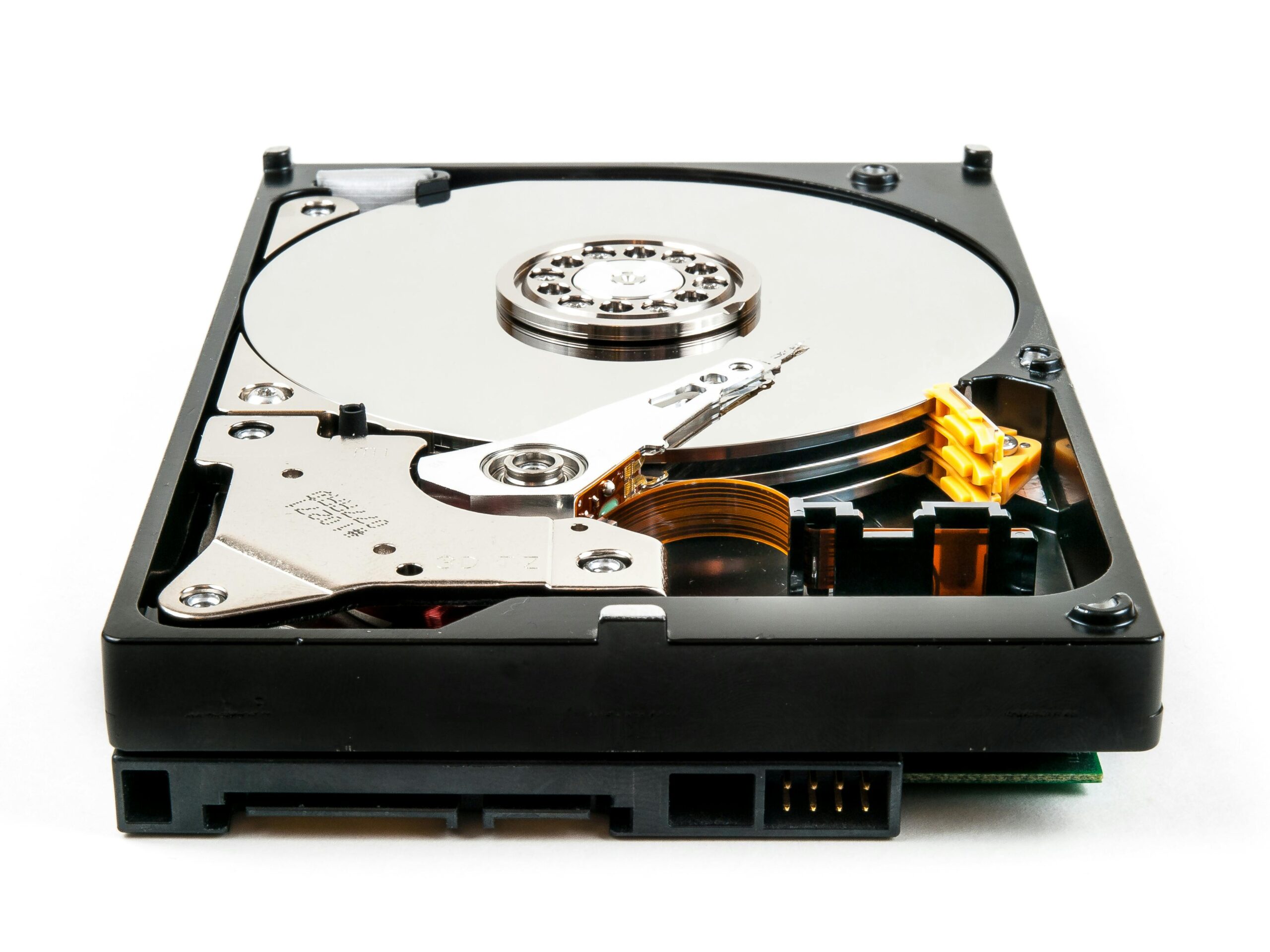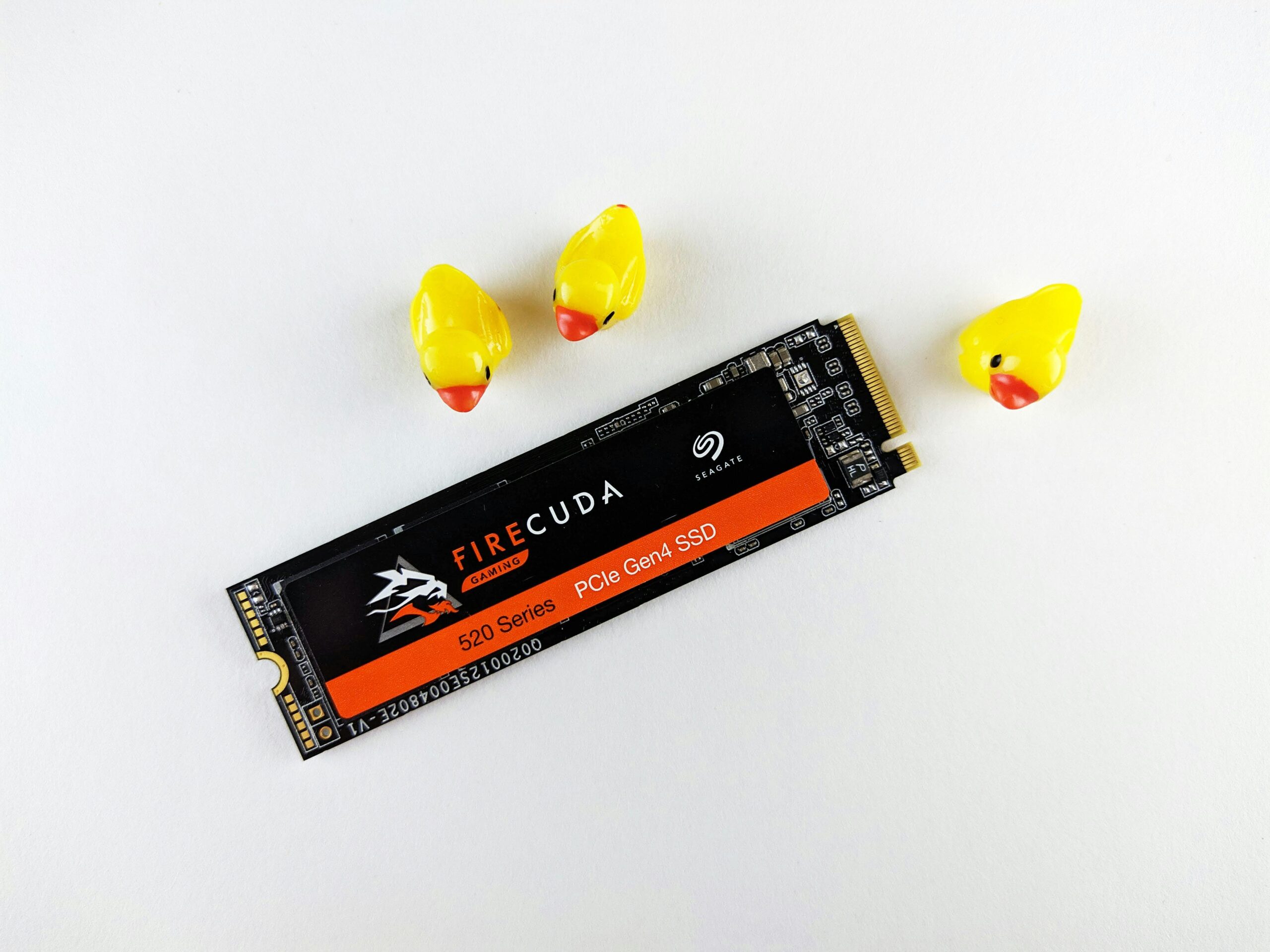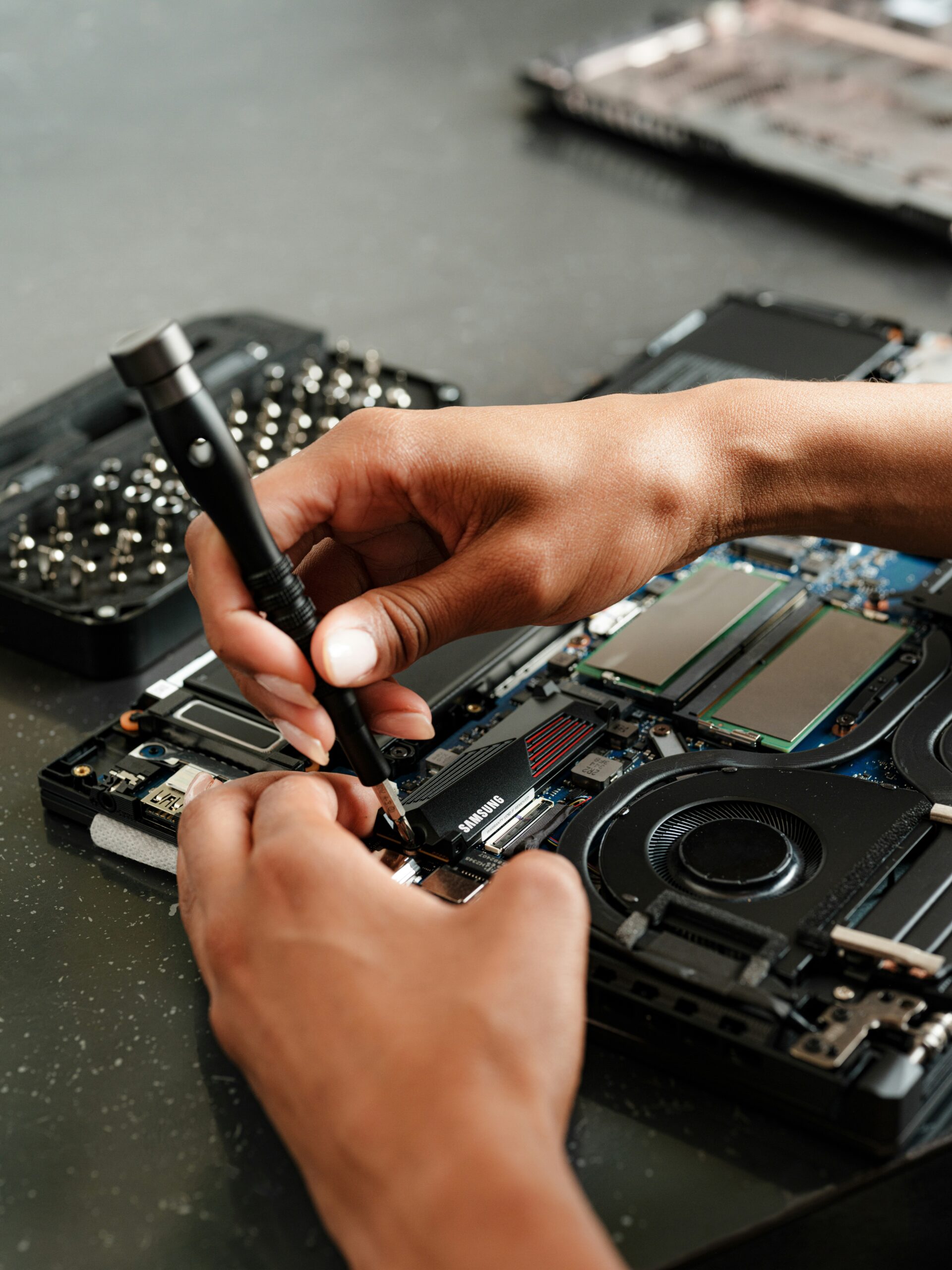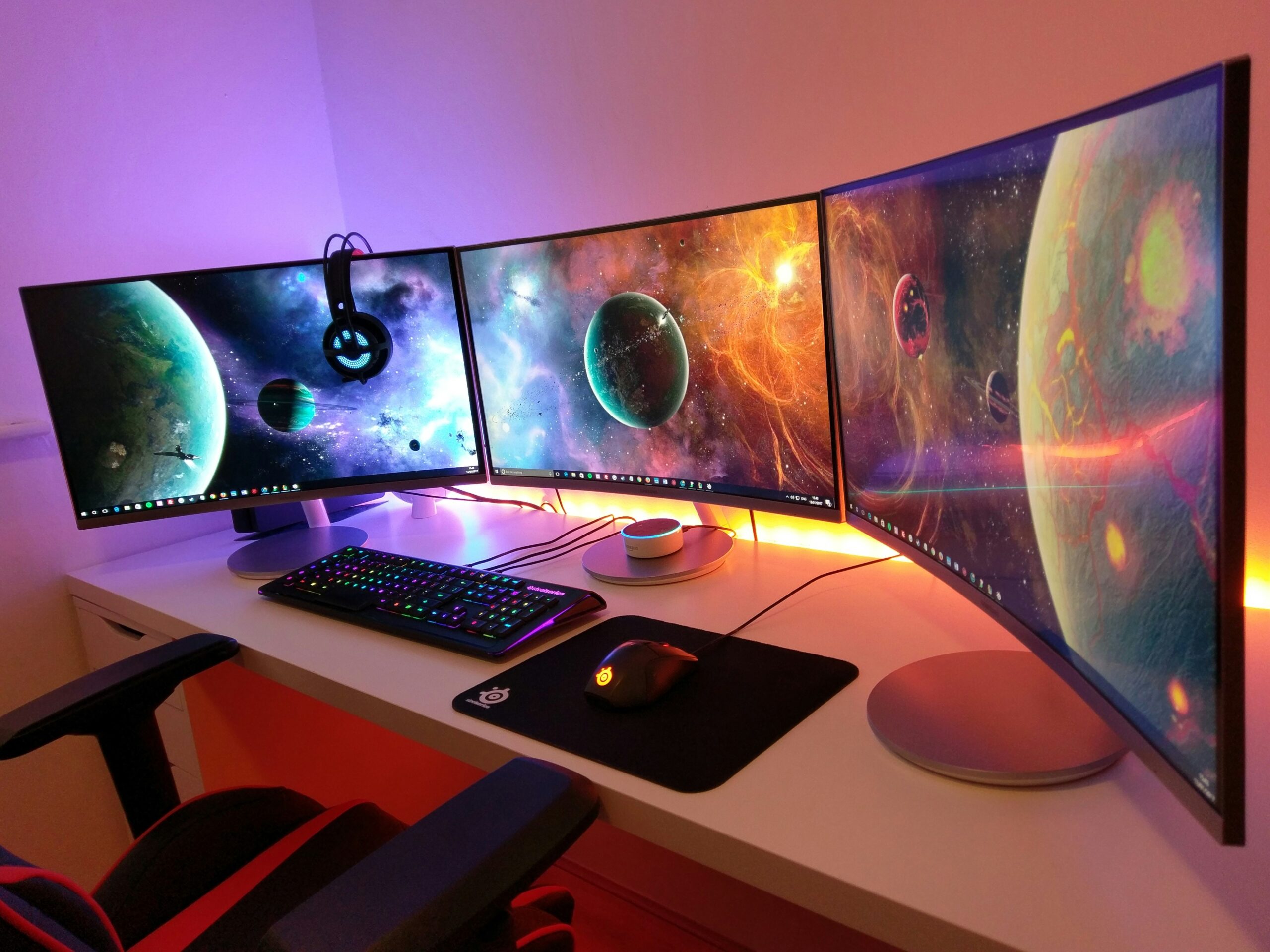SSD vs. HDD: Which Storage Solution Is Best for You?
Choosing the right storage solution is crucial for optimizing your computer’s performance and meeting your data storage needs. Solid-State Drives (SSDs) and Hard Disk Drives (HDDs) are the two main types of storage devices available today, each with its own set of advantages and disadvantages. In this guide, we’ll compare SSDs and HDDs to help you decide which is best suited for your needs.
1. Understanding SSDs and HDDs
What is an SSD?
A Solid-State Drive (SSD) uses flash memory to store data, similar to a USB drive. SSDs have no moving parts, which makes them faster, more durable, and quieter compared to traditional HDDs.
Key Features of SSDs:
- Speed: Significantly faster read and write speeds.
- Durability: Less prone to mechanical failure due to the absence of moving parts.
- Form Factor: Compact and lightweight, ideal for laptops and portable devices.
What is an HDD?
A Hard Disk Drive (HDD) uses spinning magnetic disks (platters) to store data, with read/write heads moving across the platters to access information. HDDs are more affordable but slower and less durable than SSDs.
Key Features of HDDs:
- Capacity: Available in larger sizes at a lower cost.
- Price: Generally cheaper per gigabyte compared to SSDs.
- Reliability: Mechanical components are more susceptible to wear and failure.
Resource:
Learn more about SSDs and HDDs (Kingston Technology)
2. Performance Comparison: Speed and Efficiency
Speed:
- SSD: SSDs offer much faster data access, boot times, and file transfers. They can reach speeds up to 500 MB/s for SATA SSDs and over 3,500 MB/s for NVMe SSDs.
- HDD: HDDs are significantly slower, with average speeds around 100–150 MB/s. This difference is noticeable in everyday tasks like booting the operating system or launching applications.
Efficiency:
- SSD: Consumes less power, which can extend battery life in laptops and reduce energy costs in desktops.
- HDD: Consumes more power due to spinning disks and mechanical movement, making it less efficient, especially in portable devices.
Resource:
SSD vs. HDD performance comparison (PC Gamer)

3. Durability and Reliability
Durability:
- SSD: With no moving parts, SSDs are less likely to suffer from physical damage due to drops or shocks, making them ideal for mobile and portable use.
- HDD: More vulnerable to physical damage and mechanical failure due to their reliance on moving parts. HDDs are better suited for stationary setups where physical impacts are less of a concern.
Reliability:
- SSD: Generally more reliable in terms of longevity and consistent performance over time, though they have a limited number of write cycles (not typically a concern for average users).
- HDD: Lifespan can be affected by mechanical wear and tear, leading to potential data loss if not properly maintained or backed up.
Resource:
Comparing SSD and HDD durability (Crucial)
4. Storage Capacity and Cost
Storage Capacity:
- SSD: Common capacities range from 120 GB to 4 TB, with larger options available but at higher prices.
- HDD: Typically offers more storage for the price, with capacities starting at 500 GB and going up to 16 TB or more, making them ideal for storing large amounts of data such as media libraries.
Cost:
- SSD: Higher cost per gigabyte, but prices have been decreasing steadily. An SSD is a good investment for speed-critical tasks like gaming, content creation, or as a primary boot drive.
- HDD: Lower cost per gigabyte, making HDDs a cost-effective solution for bulk storage needs, like backup and archiving.
Resource:
Current SSD and HDD prices (Tom’s Hardware)

5. Use Cases: Which is Best for You?
Best Use Cases for SSDs:
- Gaming: Faster load times and smoother gameplay.
- Content Creation: Quick access to large files like video editing projects.
- Everyday Computing: Improved overall system responsiveness and boot times.
Best Use Cases for HDDs:
- Mass Storage: Ideal for storing large media collections, backups, and less frequently accessed data.
- Budget Builds: Perfect for users needing high capacity without the performance premium of SSDs.
- Archiving and Backups: Excellent for long-term storage due to the lower cost per gigabyte.
Resource:
Choosing between SSD and HDD (TechRadar)
6. Hybrid Storage Solutions: Best of Both Worlds
Many users opt for a hybrid approach, combining the speed of an SSD with the capacity of an HDD. This setup typically involves using an SSD as the primary drive for the operating system and applications, while an HDD serves as a secondary drive for larger files and backups. This combination offers the performance benefits of SSDs without sacrificing the storage capacity that HDDs provide.
Resource:
Hybrid storage solutions explained (How-To Geek)
7. Future Trends in Storage Technology
NVMe SSDs:
Non-Volatile Memory Express (NVMe) SSDs offer the fastest speeds available, connecting directly to the motherboard via the PCIe slot. NVMe drives are the best choice for those who need extreme performance, like professional gamers and content creators.
HDD Advancements:
Despite the rise of SSDs, HDDs continue to evolve with technologies like SMR (Shingled Magnetic Recording) and HAMR (Heat-Assisted Magnetic Recording) to increase storage density and capacity, making them relevant for high-capacity needs.
Resource:
Future of storage technologies (ZDNet)
8. Conclusion: Making Your Decision
- Choose an SSD if: You prioritize speed, responsiveness, and durability. SSDs are perfect for enhancing system performance, reducing load times, and making everyday computing tasks snappier.
- Choose an HDD if: You need large storage capacity at a lower cost. HDDs are ideal for bulk storage of files, backups, and media that do not require frequent access or high-speed performance.
For the best of both worlds, consider a combination of SSD and HDD to balance performance and storage needs. For more insights on storage options and the latest tech tips, visit PCGyan.com.


